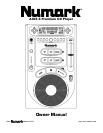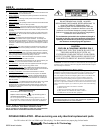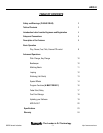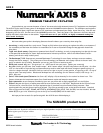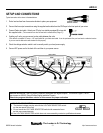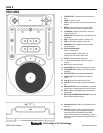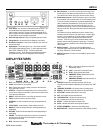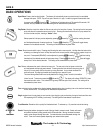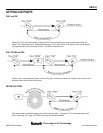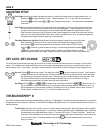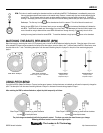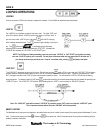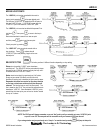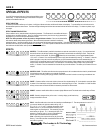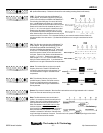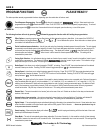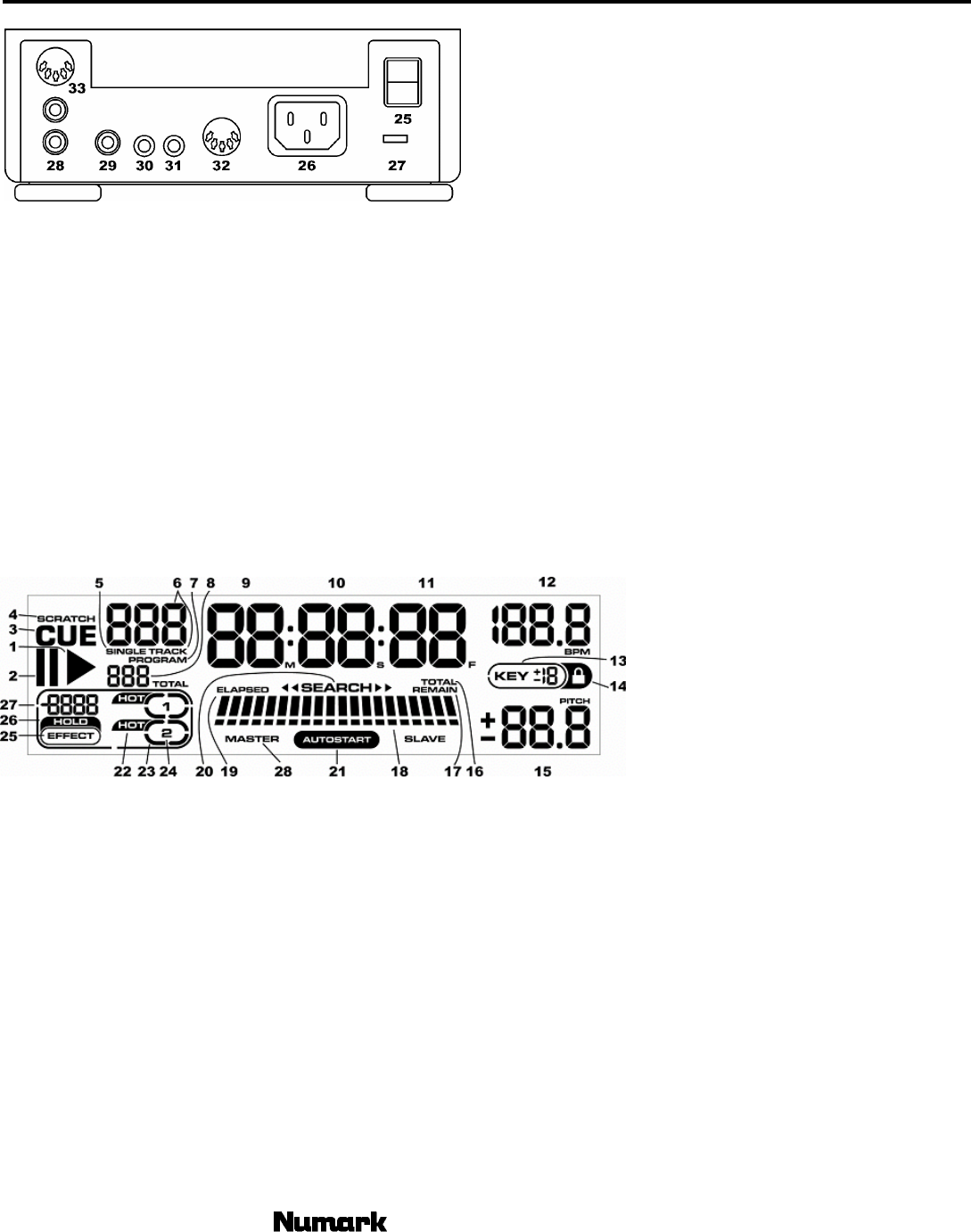
AXIS 8
25. Power Switch- Turn on and turn off the machine with this button. The
unit should always be shut down with this button first before any
external power is removed. Typically it is recommended that the CD
player is powered on before amplifiers and off after amplifiers to avoid
an audio spike to be sent through your equipment.
26. IEC Power Plug Connector - Plug your supplied power cord in here.
27. Voltage Selector - Set this switch to the voltage for your location.
28. RCA Audio Connectors - Connect your CD player to your mixer from
this line level output.
29. Digital Output - The format is type 2, form 1, also known as S/PDIF
(Sony/Phillips Digital Interface Format). To active digital output, hold
down “PROG” followed by “PITCH”. This allows digital audio
information to be sent. Some CDs also have information encoded in
the original audio output such as CDG graphic CDs for Karaoke.
30. Relay Connector- If you wish to use the relay function plug in your
3.5mm stereo control cables into here and then into your other unit.
The cable must be a stereo style plug for the units to work properly
31. Remote Start Connector – Use this connector to plug into your fader
start compatible mixer or remote switch. This function is always active.
To use this connector for fader start, connect the supplied fader start
cable to a fader start compatible mixer. Every time you move the
crossfader on the mixer over to the side that the unit is on, it will
automatically start playing. When you move the fader away from that
side, the unit will stop. Moving the fader back to the unit side will start
play again.
Foot switches can also be attached to this jack for creative mixing
techniques and can be found in most music shops. Connector plugs
are often ¼” and an adapter to 1/8” will be needed for connection.
There are also two types of footswitches that will work with this
connector. The first is a typical, on/off pushbutton switch and are
generally used for switching channels on guitar amps. The second
switch is a momentary footswitch and is usually used for keyboard
sustain pedals.
32. MIDI IN Connector – The port is for receiving MIDI (Musical
Instrument Digital Interface) signals from other MIDI devices such as
CD players, Keyboards, or Drum machines.
33. MIDI OUT Connector –The port is for sending MIDI signals to other
MIDI devices .
DISPLAY FEATURES
1. PLAY - Active while the unit is actually playing a CD.
2. PAUSE - Active when the unit is paused.
3. CUE - Flashing when the unit is setting a cue point. Active when the
unit is paused at a cue point.
4. SCRATCH – indicates when the wheel will cue as a smooth transition
over the music creating a scratch effect. When not lit the wheel will cue
in the customary stutter style.
5. SINGLE - Shows when the unit is set to play just one track at a time.
6. TRACK - Shows the track that the unit is playing.
7. PROGRAM – On when a sequence of songs is preprogrammed into
the unit.
8. TOTAL TRACK – shows number of tracks available on the CD.
9. MINUTES - Shows the minutes elapsed or remaining depending on
mode setting.
10. SECONDS - Shows the seconds elapsed or remaining depending on
mode setting.
11. FRAMES - The CD Player breaks down a second into 75 frames for
accurate cueing. This shows the frames elapsed or remaining
depending on mode setting.
12. BPM – Indicates the current BPM.
13. KEY – Lights when key effects are active and
indicates key position.
14. LOCK – Lights when key has been locked
15. PITCH – Shows current pitch position.
16. TIME MODE (TOTAL) indicates when full CD
remain time is showing.
17. TIME MODE (REMAIN) shows how much time is
left on a particular track.
18. TIME BAR - Shows either track time remaining, total CD time
remaining or track elapsed time depending on the setting of the “TIME”
button.
19. TIME MODE (ELAPSED) is for showing time as it is taking place.
20. SEARCH – Shows when the wheel is active for the search effect.
21. AUTOSTART- Indicates when the CD is set to relay.
22. HOT – Active when hot points have been set.
23. LOOP INDICATOR – Activates as loops are playing.
24. 1,2 – Indicates which hot points or loops are set.
25. EFFECT – indicates when wheel is in effect mode.
26. HOLD – indicates when effects are being held in position.
27. EFFECT PARAMETER – Shows the current effect setting.
28. MASTER/SLAVE – indicates unit dominance in MIDI interlock functions
- The Leader in DJ Technology
©2002 Numark Industries - 7 - http://www.numark.com



